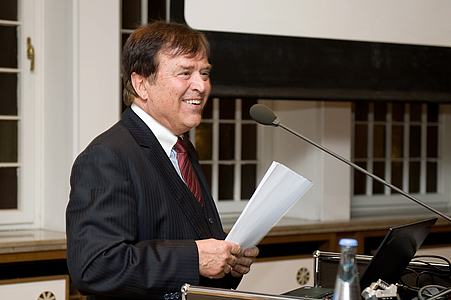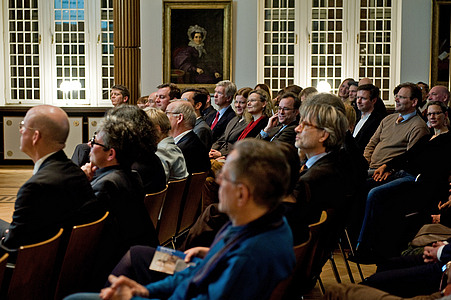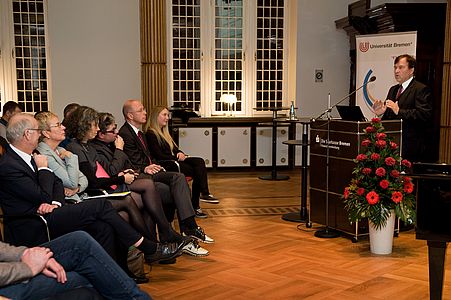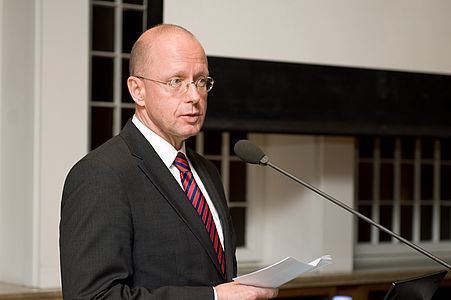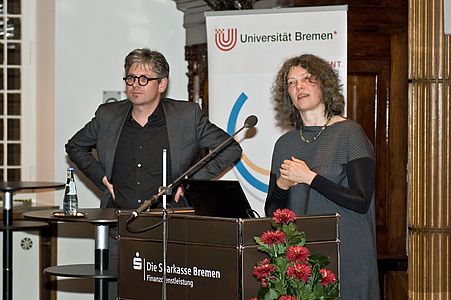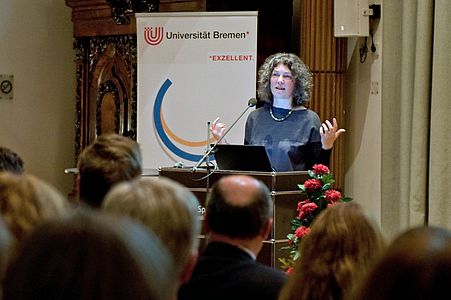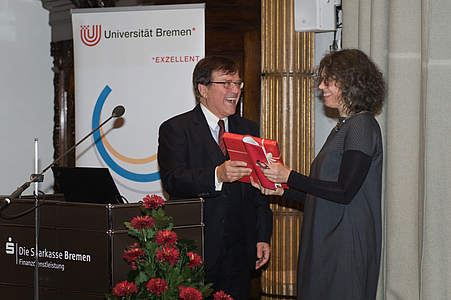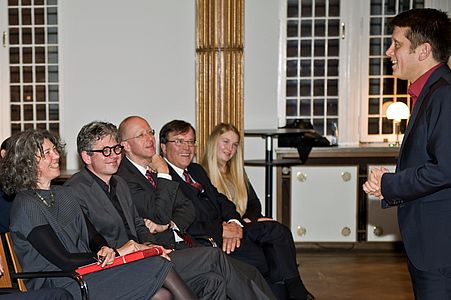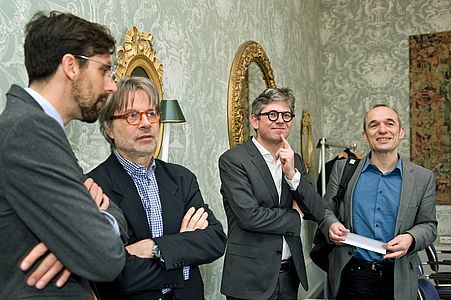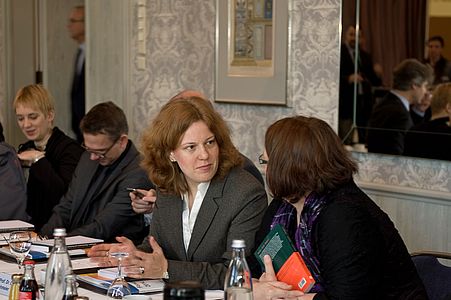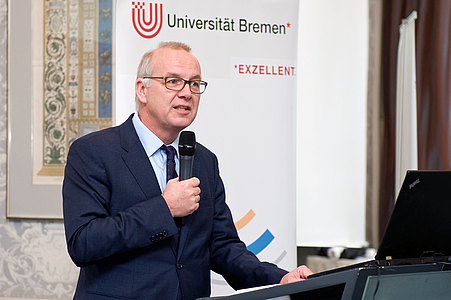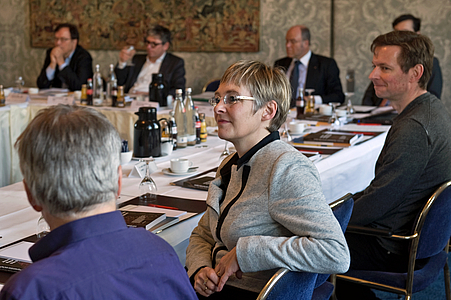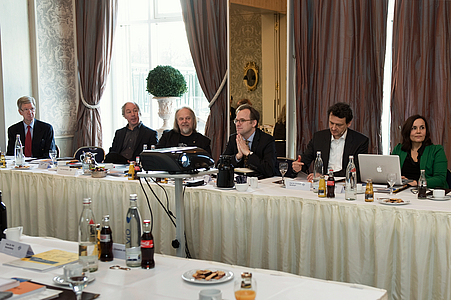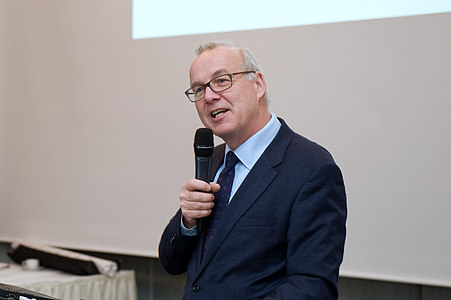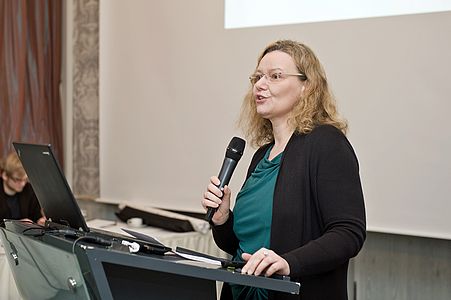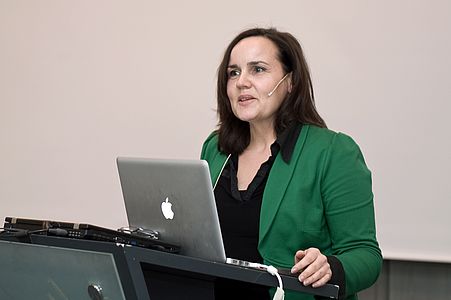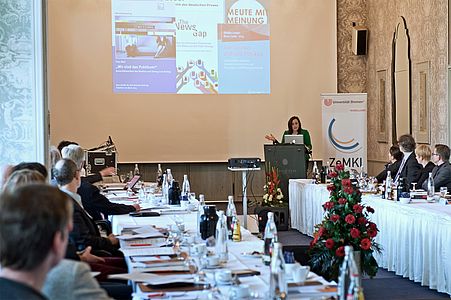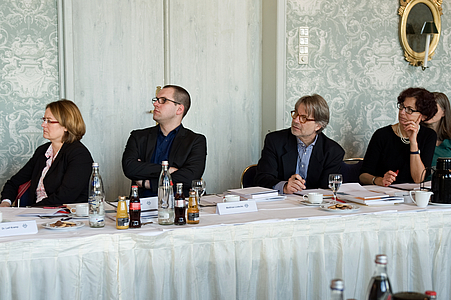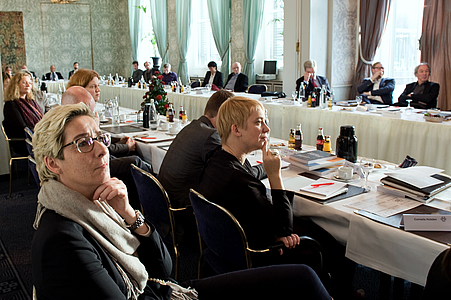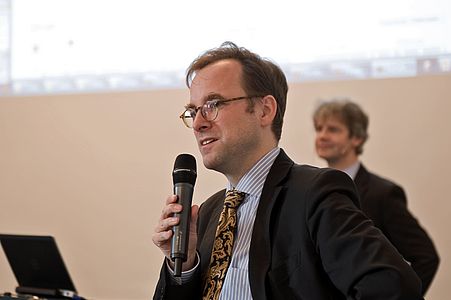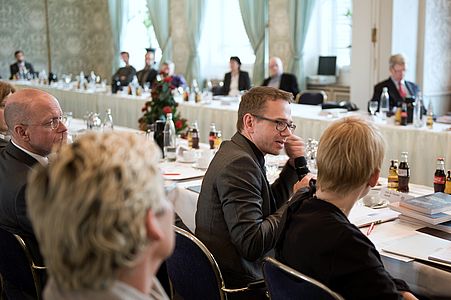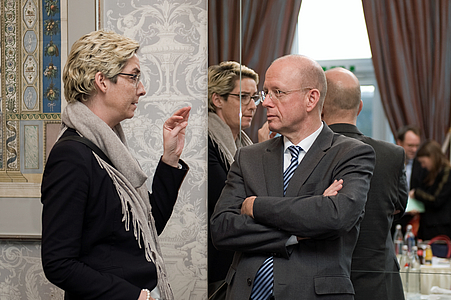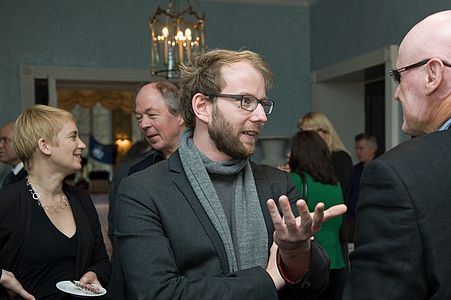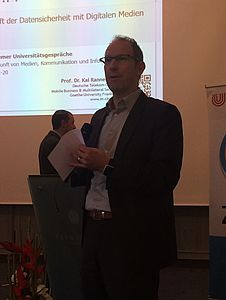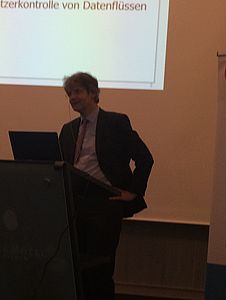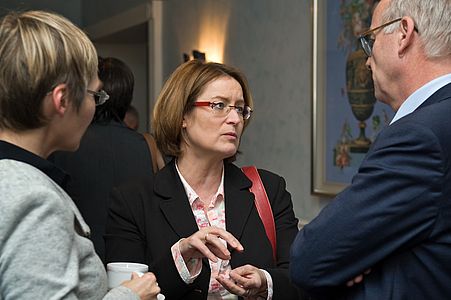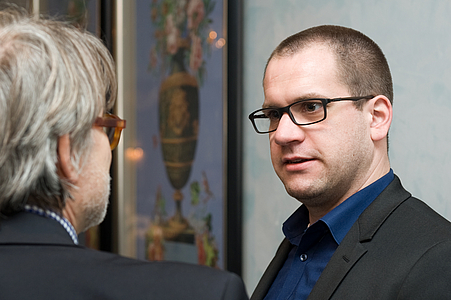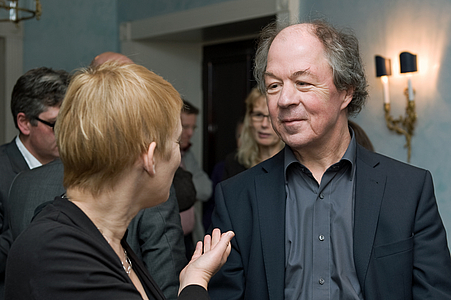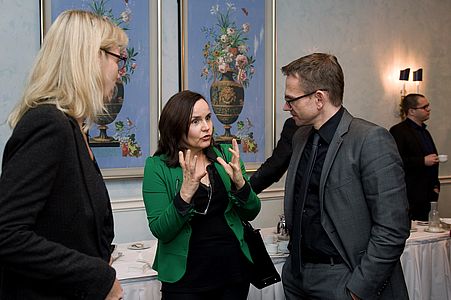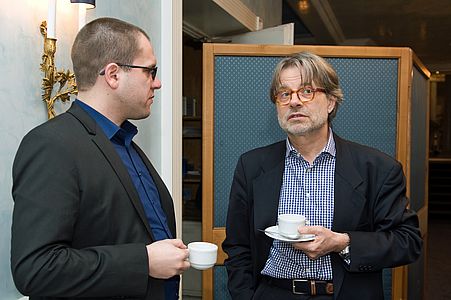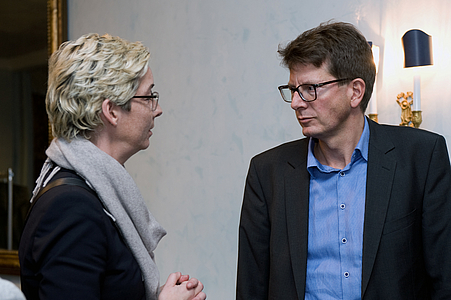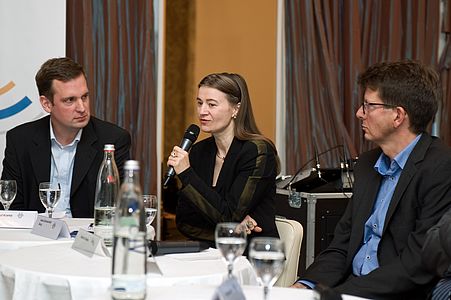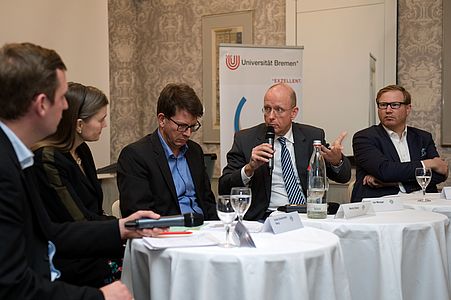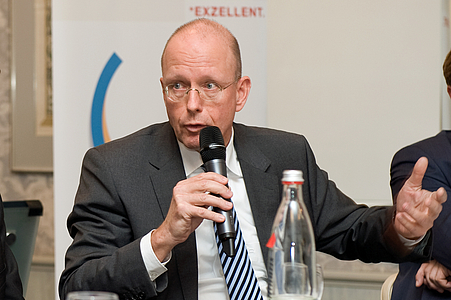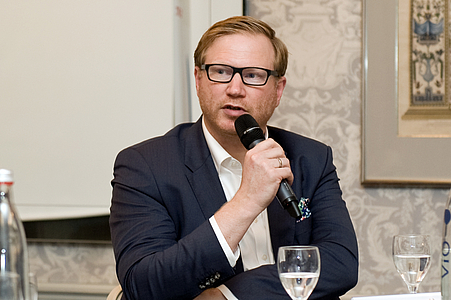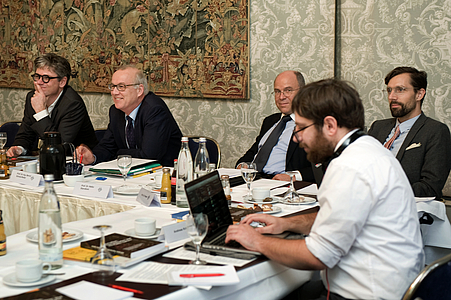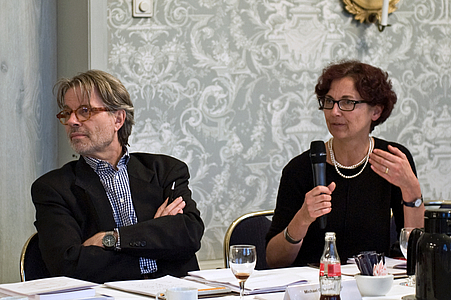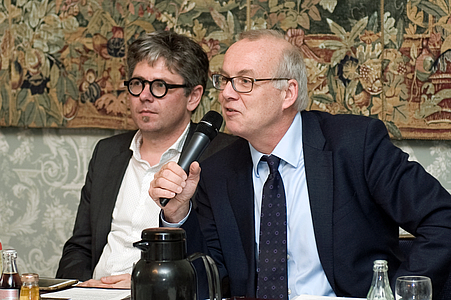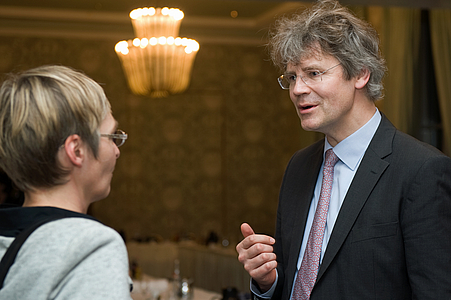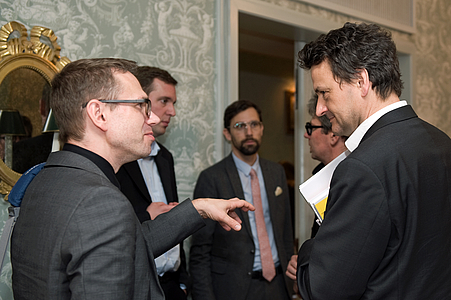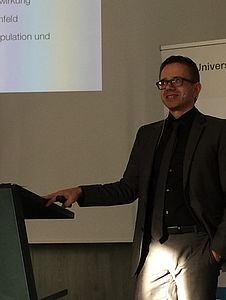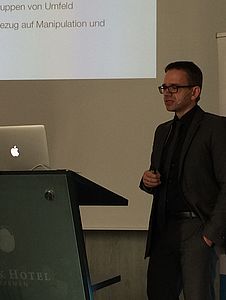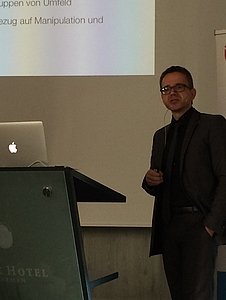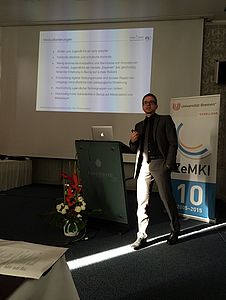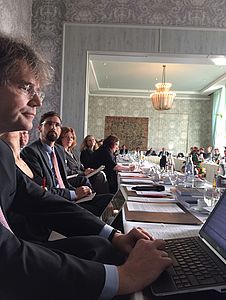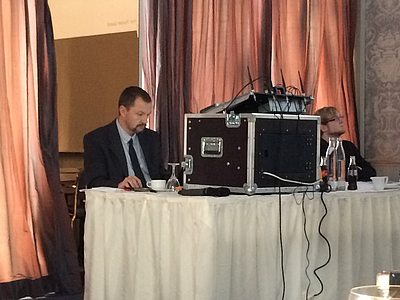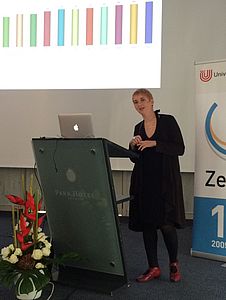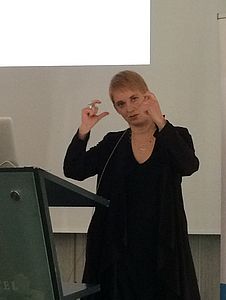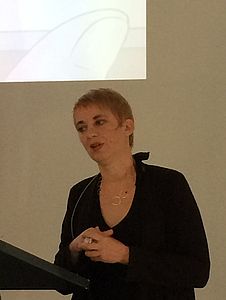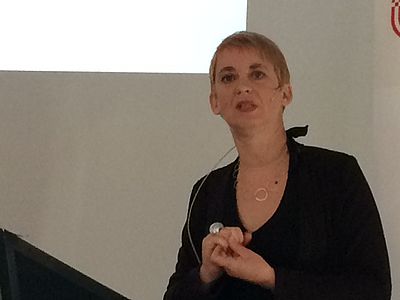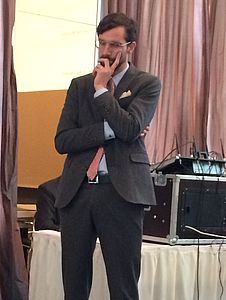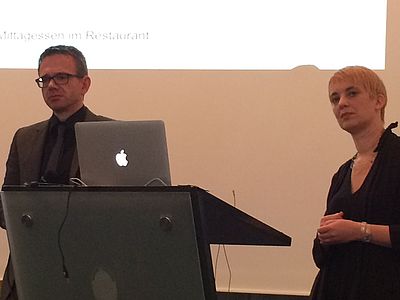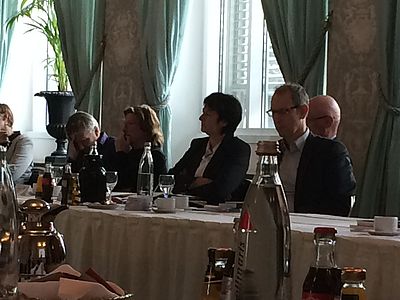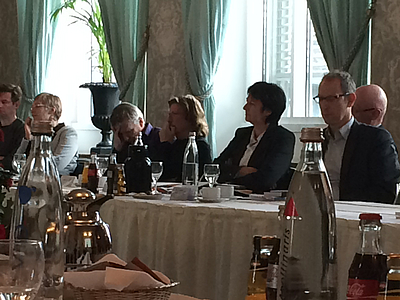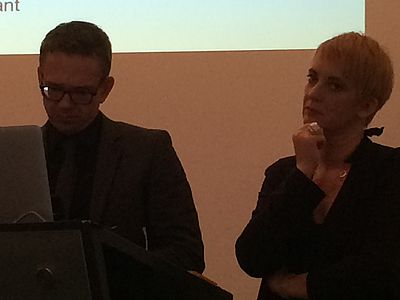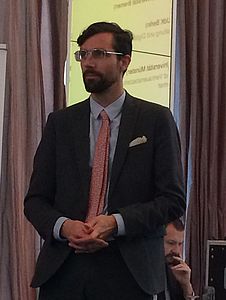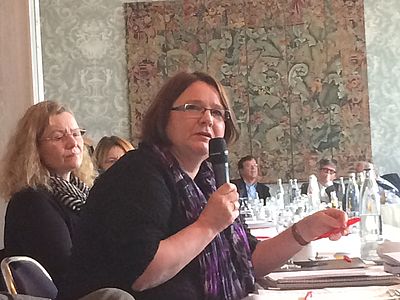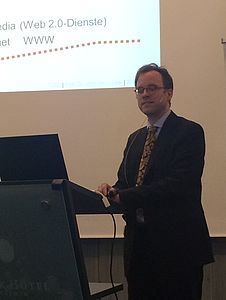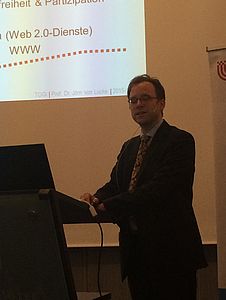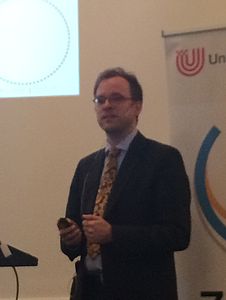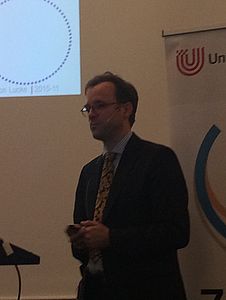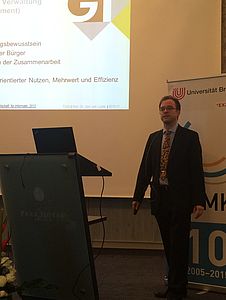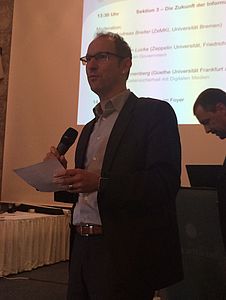BUG 2015
[Translate to English:] Die Zukunft von Medien, Kommunikation und Information
The topic
Media are an integral part of everyday life, culture and society. Their transformation in the course of overarching processes such as digitalisation, globalisation and commercialisation is also increasingly shaping social change. The way we live together is being profoundly influenced by media, communication and information. But where are the media companies that provide us with news about world events heading? What is changing in the way we communicate in our mediatised everyday lives? And how will we deal with ever more complex, ever more revealing information? The question of the future of media, communication and information concerns fundamental and urgent research questions in a society in which information habits, social relationship structures and the handling of data are subject to fundamental change. This year, the Bremen University Talks are focussing on the challenges of the media-driven transformation of social reality. Three sections will discuss which developments can be expected across all media and what effects this will have on culture and society: In Section 1 Future of the Media, the academics will shed light on future strategies in journalism and highlight the upheaval in society's self-image. Section 2 Future of Communication deals with the change in social relationships with the media - both the establishment, development and maintenance of relationships as well as their separation. It also analyses how the influence of technical communication media shapes social interaction. Section 3, The Future of Information, deals in detail with questions of data security - a subject area that touches on both the informational self-determination of the individual and the cognitive potential of big data - and the potential of open data for social and economic development. The sections are linked by three overarching questions that will be discussed together: How is the relationship between experts and laypeople changing in the wake of media change? How does the contrast between the private and public spheres change in the course of media change, particularly with regard to individual lifestyles? And what challenges does media change pose for the relationship between locality and globality? The Bremen University Talks will open with a public lecture by Prof. Dr Sonia Livingstone, one of the world's most renowned communication and media scientists, who promises relevant theses on the major questions of the 28th Bremen University Talks. The talks will conclude with a moderated panel discussion with outstanding representatives from media practice, who will act as discourse-defining thought leaders in the focussed subject areas.
Welcome, greetings, dinner speech
Grußwort von Herrn Jan Metzger
Ladies and Gentlemen,
In my industry, it is now considered a truism - without everyone having drawn the necessary conclusions: The Internet is fundamentally changing all traditional media. The publishing business model is gradually disintegrating. Publishing, or in our case broadcasting in the electronic media, is increasingly becoming communication and dialogue thanks to the new possibilities of the Internet. This has far-reaching consequences. We should always be aware of one thing: We only know the beginning of this story, because the Internet is very young, just 20 years old. Its story has only just begun - albeit a furious one and accompanied by far-reaching changes in society and the economy from the outset. Nobody knows exactly where this story will take us. The big questions for us media makers are: What do these changes mean for traditional media? For traditional business models? For journalistic content?
moreKeynote speech
The future of children's rights in the digital age
Over the course of my career, I have spent some 20 years researching the meaning, use and consequences of children's engagement with the ever-changing 'new media'. I have spent time - mainly in Europe - in children's bedrooms, talking to families in their living rooms, observing the use of technology in classrooms, following the latest trends in social media and interviewing children and parents around the world.
moreGrußwort von Frau Prof. Dr. Eva Quante-Brandt
Ladies and gentlemen,
Once again this year, the organisers of the Bremen University Talks have chosen a topic of great socio-political importance and urgency. In a nutshell, it is about how the future of media, communication and information is changing our society.
Media, communication and information are currently one of the most dynamically developing areas. Many communication phenomena that characterise everyday life today, such as the smartphone and the possibility of always being on, could not have been foreseen to this extent a decade ago. The same applies to the current discussion about big data and digital footprints, i.e. the many traces we leave behind with digital media. There is every indication that the future of media, communication and information will also be highly dynamic. On the one hand, it is important to recognise the potential - such as new networking opportunities - but also the considerable risks. The two are often closely linked.
moreTischrede von Herrn Prof. Dr. Heiko Staroßom
Ladies and gentlemen,
I would like to welcome you to the Scotland Hall of the Atlantic Grand Hotel Bremen. Once again we are coming together for the Bremen University Talks. This year's topic is: The future of media, communication and information. An incredibly exciting topic! Above all, it is also a topic in which everyone can - and does - have their say. Have you ever noticed that wherever people who know each other at least rudimentarily come together, a conversation starts immediately? The human language has twenty-six letters and thus generates an unlimited number of new sentences. Well, at least that's how it was in the hoary past, before the smartphone.
moreThe future of the media
Prof. Dr. Christoph Neuberger - Ludwig-Maximilians-Universität München
The future of journalism in the digital age
Prof Neuberger has been teaching at the LMU Munich since 2011. 1985-1990 studied journalism, political science, sociology and philosophy in Eichstätt and Tübingen. Doctorate (1995) and habilitation (2001) at the Catholic University of Eichstätt, where he was a research associate and assistant on the journalism degree programme from 1990. 2001/02 Professor of Journalism Studies at the University of Leipzig. 2002-2011 Professor of Communication Science specialising in "Journalism Studies" at the Westfälische Wilhelms-Universität Münster.
PD Dr. habil. Wiebke Loosen - Hans-Bredow-Institut für Medienforschung, Hamburg
New actors, new relationships - journalism and (its) audience
PD Dr Wiebke Loosen studied communication science at the University of Münster. She also worked there as a research associate and assistant before moving to the University of Hamburg in 2000. In 2006/2007, she held a professorship in communication science specialising in online communication and communicator research at the Ludwig Maximilian University of Munich. In 2010, she completed her habilitation with the topic "Transformations of Journalism and Journalism Research" at the Department of Social Sciences at the University of Hamburg. Since 1 April 2010, Wiebke Loosen has been working as a research assistant at the Hans Bredow Institute. Her research focusses on journalism research, online communication and methods of empirical communication research. Wiebke Loosen is a member of the Board of Trustees of the Akademie für Publizistik and co-editor of the series "Aktuell. Studies in Journalism" series published by Nomos-Verlag.
moreThe future of communication
Prof. Dr. Thorsten Quandt - Westfälische Wilhelms-Universität Münster
Prof Dr Thorsten Quandt - Westfälische Wilhelms-Universität Münster
Challenges of communicative change - risks of young people's online use
Prof Quandt has been teaching at the University of Münster since 2012. 1990-1996 Studied journalism, psychology, film/television studies and cultural studies in Bochum and Liverpool. 1996-1998 Worked as a radio journalist. 1997-2007 Research assistant at the TU Ilmenau and the Ludwig-Maximilians-University Munich. 2004 Doctorate in Philosophy (TU Ilmenau), 2007 Habilitation in Communication Science (LMU Munich). 2006 deputy professorship at the Free University of Berlin, 2007-2008 junior professorship at the FU Berlin. From 2009-2012 Professor at the University of Hohenheim, Chair of Communication Science, esp. Interactive Media and Online Communication, 2012 Managing Director of the Institute of Communication Science, University of Hohenheim. ERC grantholder (EU Excellence Programme) since 2010, member of the Executive Board of the European Communication Research and Education Association (ECREA) since 2011 and Chairman of the Interest Group for "Digital Games". Board member of the journals "Communication Theory" and "Digital Journalism". Co-editor of the Journal of Communication.
Prof. Dr Maren Hartmann - Berlin University of the Arts
Mobile media, lifestyles and digital divide/exclusion
Prof Hartmann has been Professor of Communication and Media Sociology at Berlin University of the Arts since December 2014. She also began her studies in Berlin, as a student of journalism, theatre studies and philosophy at the Free University of Berlin. After graduating, she spent some time in the UK at the University of Sussex, the University of Westminster and the University of Brighton. Maren Hartmann also taught at the Vrije Universiteit in Brussels before moving to Erfurt and Bremen. In 2007, Maren Hartmann was appointed Junior Professor of Communication Sociology at the Berlin University of the Arts.
more
The future of information
Prof. Dr. Kai Rannenberg - Goethe Universität Frankfurt am Main
he future of data security with digital media - Multilateral security as a necessity and enabler
Prof Rannenberg has held the Deutsche Telekom Chair (formerly T-Mobile Chair) for Mobile Business & Multilateral Security since 2002. Prior to this, he worked in the System Security Group at Microsoft Research Cambridge, UK, specialising in "Personal Security Devices & Privacy Technologies".
From 1993-1999, Kai worked at the University of Freiburg and coordinated the interdisciplinary "Kolleg Sicherheit in der Kommunikationstechnik", which was funded by the Gottlieb Daimler & Karl Benz Foundation and focussed on multilateral security. After graduating in computer science at the TU Berlin, he completed his doctorate at the University of Freiburg on IT security evaluation criteria and their possibilities and limitations with regard to the protection of users and participants.
Prof. Dr. Jörn von Lucke - Zeppelin Universität
The potential of open government - thoughts on the future of information
Prof. von Lucke has been a professor of administrative and business informatics at Zeppelin University since 2009. 2001 to 2007, habilitation under Prof. Heinrich Reinermann, DHV Speyer. 1996 to 1999, studied administrative science (doctorate) at the German University of Administrative Sciences Speyer. Von Lucke is Director of the Deutsche Telekom Institute for Connected Cities (TICC). His research focuses on administrative informatics, e-government, open government, e-business
vernment, e-business, Internet technologies, Web 2.0, portals, One Stop Government, document safe, data notary, responsibility finder, administrative advisor, single point of contact, citizens' telephone D115, digital identity.

